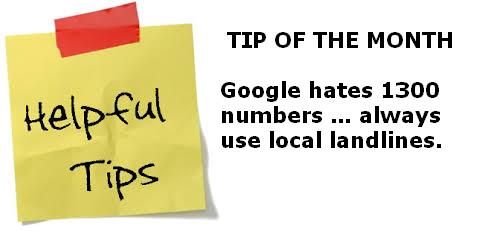
Many, many years ago when I was in the corporate world I added a middle initial ‘M’ to my name … just like another well-known expat Kiwi Harry M Miller. Of course, Martin is my middle name so it wasn’t entirely made up and it sounded appropriate to me at the time although I must admit even then the pseudo Americanisation did irk me a little.
I also used to add the post nominals for my Fellowship status with the Australian Marketing Institute (FAMI) and the Australian Institute of Chartered Secretaries & Administrators (FICSA) to my business cards (oh callow youth).
Of course, I dropped it all a long time ago. Probably after a well intentioned business colleague shared with me his personal philosophy that someone’s real importance in any organisation could be easily gauged as being inversely proportional to the length of their title.
Anyway, suffice to say I did not expect to have to use my middle initial ever again … that was until Mr Google persuaded me otherwise.
But why I actually reverted conveys an important story about the influence of the internet (and Google) on our modern digital lives and the impact on local search in particular.
In this instance, after having an office for over 20 years in the CBD, I was looking for a simple email address that was both generic and transportable (moving to a home office). Most people have two or three email addresses and I had about six different ones on the go at the time, plus aliases, and all hosted on various dedicated mail-servers.
Being in SEO I was always aware that it was essential to be consistent with all personal details on the internet and knew even a single mis-spelling on a directory can have dire consequences.
But the simple fact of the matter is that another, US-based, Andrew Connery (god bless him) had already grabbed the shorter form of the Gmail address I was after.
Researching on LinkedIn I belatedly discovered there were in fact at least eleven other Andrew Connerys listed world-wide, with four professionals listed in Australia alone (although I think I’m definitely 2 and possibly 3 of them)!
Having considered up till that time I largely shared my searchable (indexed) surname with my distant Uncle Sean of 007 fame (joke, no real relative) this development was a complete revelation to me, and quickly persuaded me to add the M once again and move on.
Try this … using my name as an example
If you search for ‘Connery’
You get: wall-to-wall Uncle Sean
If you search ‘Andrew +Connery’ about four of the ten listings on the Google SERP (Search Engine Results Page) relate to me personally plus an assortment of other namesakes including one young fellow from Canada with a lot of YouTube videos.
If you search ‘Connery + Wollongong’ seven of the ten listings on the Google SERP (Search Engine Results Page) relate to me personally and three to a real estate firm in the northern suburbs (also no relative).
If however you search ‘Andrew Connery Wollongong’ you get yours truly 10/10.
If you didn’t know where I lived and searched ‘Andrew M Connery’ you get yours truly for the first four … which for practical purpose is probably as good as 10/10.
The reason I’m giving this small demo is to show that how you present your personal name and/or business name is critically important when it comes to being found online.
Important: before you start checking your own listings make sure you turn Google’s personalisation off. To do this ADD: &pws=0 to the end of the Google URL. Note: if you don’t do this you will get seemingly marvellous search results … but not the ones everyone else actually sees the first time they look for you!
Also your address.
It has to be exactly (I mean exactly) the same for all online directories and Google related map services etc.
Even phone numbers.
A long-time SMARTPAGES directory client of mine in desperation asked me for assistance with their phone number on Google Places. The free listings which dominate local search in this case displayed the wrong contact phone number (one number had been transposed).
Apparently when their customers finally contacted them (visiting their office in person and usually very annoyed) they would say: “Your phone is out of order” … obviously, Google couldn’t be wrong!
It’s hard to quantify how many of their usual customers actually stopped ringing and placed their orders elsewhere but it was certainly starting to worry them.
It took me nearly three weeks to finally remedy the problem … a lot of waiting involved since Google do not have any human support and refer all queries to online forums. Read, figure it out yourself buddy.
Clearly it was a major marketing problem for my old customer and in my opinion virtually impossible for an average business person to rectify without professional help.
So what had been a so-called FREE Google Places listing became a lot more expensive.
EDITOR, Andrew M Connery: A pioneer in social media and active online since early 2001 heads up the Editorial team. Andrew is currently undertaking doctoral research at the School of Computer Science and Software Engineering at the University of Wollongong. A B2B marketing practitioner by profession his specialty area is local search and until July 2011 he was a Senior Trainer for the Federal Government’s Small Business Online program. His latest project is a joint venture with Barnett s Couriers to introduce 24/7 smart lockers for online purchases.
Comments
Powered by Facebook Comments